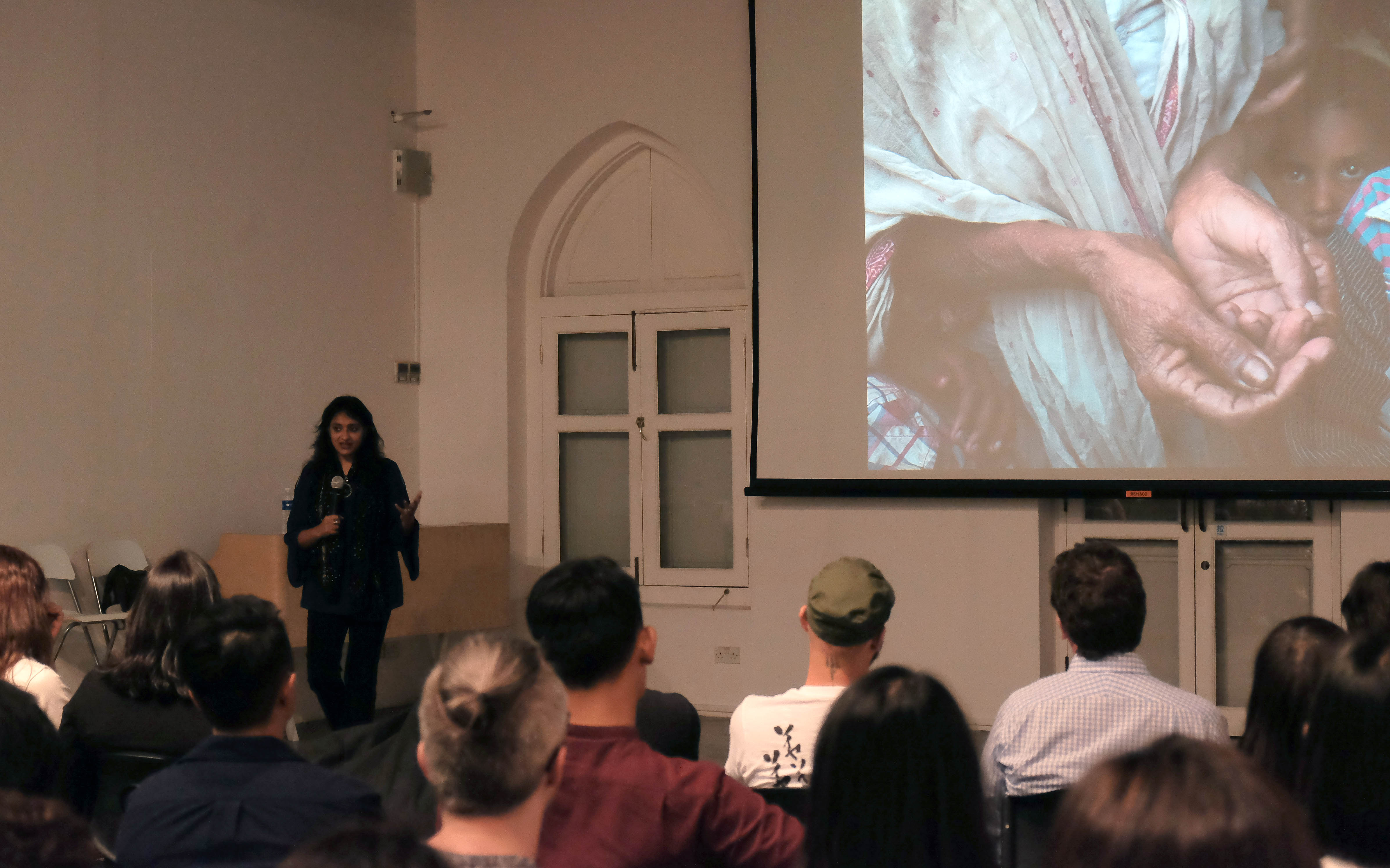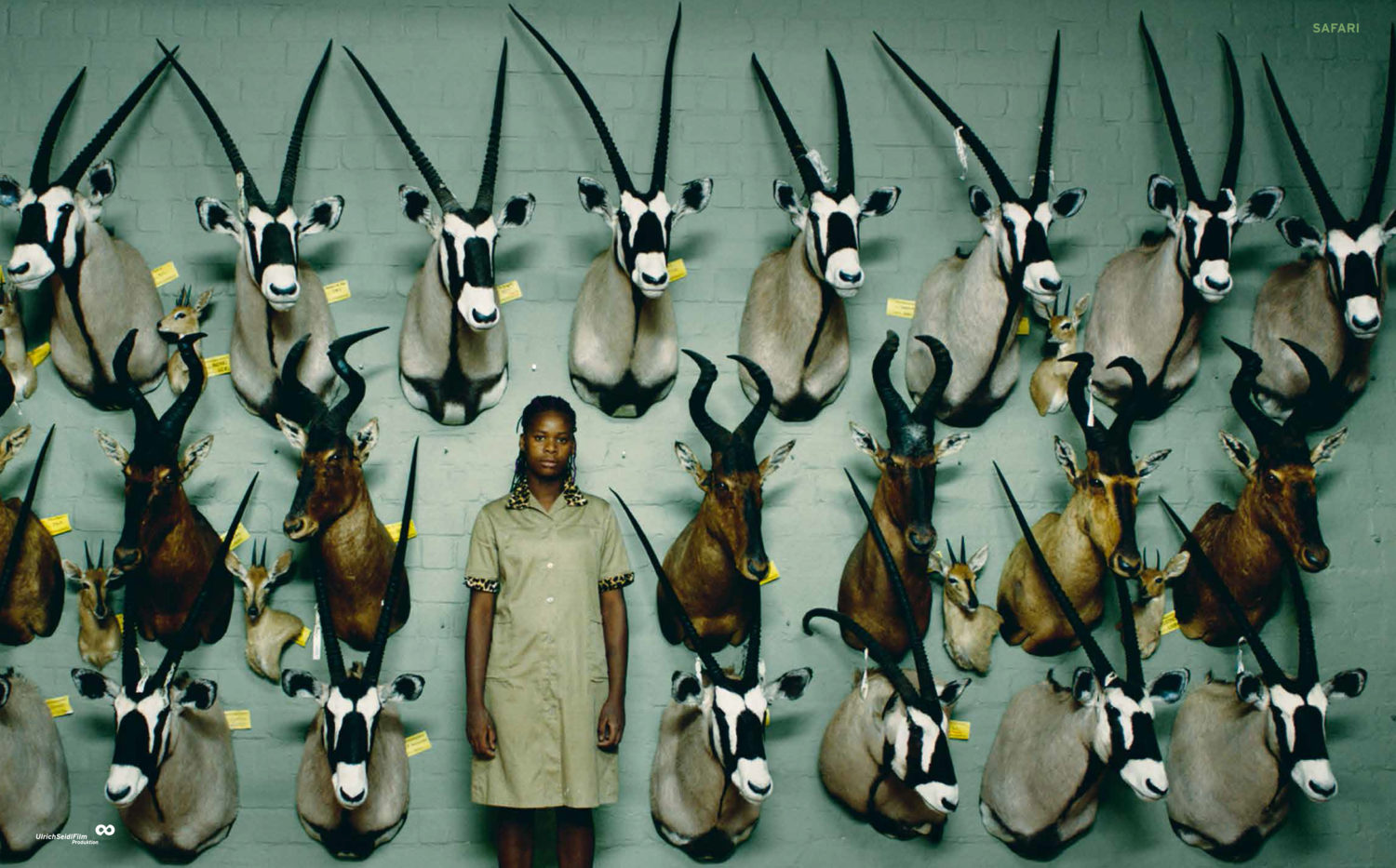Examining patterns of consumption
Objectifs presents Stories That Matter, a programme that looks at critical issues in our world through photography and film. This year, the programme features the theme ‘Conspicuous Consumption’ where ideas regarding patterns of consumption and their effects will be examined.
Objectifs is pleased to work with independent photographer Arati Kumar-Rao and the EverydayClimateChange Instagram initiative to highlight these issues, alongside a screening programme of lauded independent documentaries.

TALKS
IN CONVERSATION: ARATI KUMAR-RAO
16 March, 730pm – 9pm | Chapel Gallery, Objectifs
Entry by donation
A talk by independent photographer and writer Arati Kumar-Rao, whose work documents the slow violence of ecological degradation and climate change on ecosystems and livelihoods along South Asia’s rivers.
DOCUMENTARIES IN THE MODERN WORLD: CREATING COMPELLING CONTENT
25 March, 3pm – 4pm | Workshop Space, Objectifs
Entry by donation
What makes a good documentary tick? This talk will look at narrative, technical and formal practices that influence documentary making, with a focus on what works best, and why. With reference to the films screened as part of Stories That Matter, academic and film producer Nikki Draper will speak about the qualities that define a compelling documentary in our media saturated world.
SPECIALTY WORKSHOP
VISUAL STORYTELLING & SOCIAL ADVOCACY
Led by Arati Kumar-Rao
18 March, 9am – 5pm | Workshop Space, Objectifs
Workshop fee: S$280 / S$240* (*rate for past students of Objectifs)
SCREENINGS
22 TO 25 MARCH 2017
Chapel Gallery, Objectifs
Entry by donation, register at the links below
From food sustainability to the ethics of trophy hunting, these independent documentaries look at the ways in which our habits of consumption affect the world around us. Hailing from Myanmar to the USA, these films are powerful statements that seek to inform and inspire.
SCHEDULE
22 MARCH, WEDNESDAY / 7.30PM / REGISTER
Durian Picking by Kray Chen / Singapore / 17 min / 2016 / PG
Bugs by Andreas Johnsen / Denmark / 76 min / 2016 / PG13
23 MARCH, THURSDAY / 7.30PM / REGISTER
Cameraperson by Kirsten Johnson / 103 min / 2016 / PG13
24 MARCH, FRIDAY / 7.30PM / REGISTER
Safari by Ulrich Seidl / 91 min / 2016 / PG13
25 MARCH, SATURDAY / 7.30PM / REGISTER
City of Jade by Midi Z / Taiwan, Myanmar / 98 min / 2016 / M18
Objectifs is a partner of ‘Watch Local’, an initiative under the Singapore Film Commission.
EXHIBITION
EVERYDAYCLIMATECHANGE SHOWCASE
16 March to 30 April 2017
Courtyard, Objectifs
Admission: Free
EverydayClimateChange is an Instagram feed where photographers from all over the world have posted images regarding climate change. As these photographers are diverse and have different cultures, the assortment of images gathered reflects these varying perspectives. The photographs chosen illustrate the causes and effects of everyday climate change, and possible solutions that different communities are undertaking. The Instagram feed was founded by James Whitlow Delano.
SCREENING PROGRAMME DETAILS
22 MARCH, WEDNESDAY / 7.30PM / REGISTER
Throughout the team’s experiences and conversations, some hard questions start to emerge. If industrially produced insects become the norm, will they be as delicious and as beneficial as the ones in diverse, resilient ecosystems and cuisines around the world? And who will actually benefit as insects are scaled up? Are insects a mirror that reflects our broken food systems, or the silver bullet that will fix them?
23 MARCH, THURSDAY / 7.30PM / REGISTER
What emerges is a thoughtful mediation on the impact of images and imagemaking. In a media saturated world, Camerperson is a gentle but powerful reminder that what we see onscreen should and must be questioned, that what is not shown is often as important as what is.
24 MARCH, FRIDAY / 7.30PM / REGISTER
In capturing the rapture of German and Austrian tourists as they anticipate, stalk, and kill their prey in the wide open spaces of Africa, Safari offers a glimpse into the psyche and rituals of people who hunt these prize animals for sport, and by extension, presents the darker side of human nature.
25 MARCH, SATURDAY / 7.30PM / REGISTER
Guided by the interaction between the brothers, the film reveals the grueling conditions under which the miners work, pounding the ground with the most basic of equipment and fearing frequent raids by the military. In its depiction of a side of Myanmar that is far removed from the optimism of its recent pro-democracy reforms, City of Jade is a story of the perennial struggle for survival in the country’s darkest corners.

